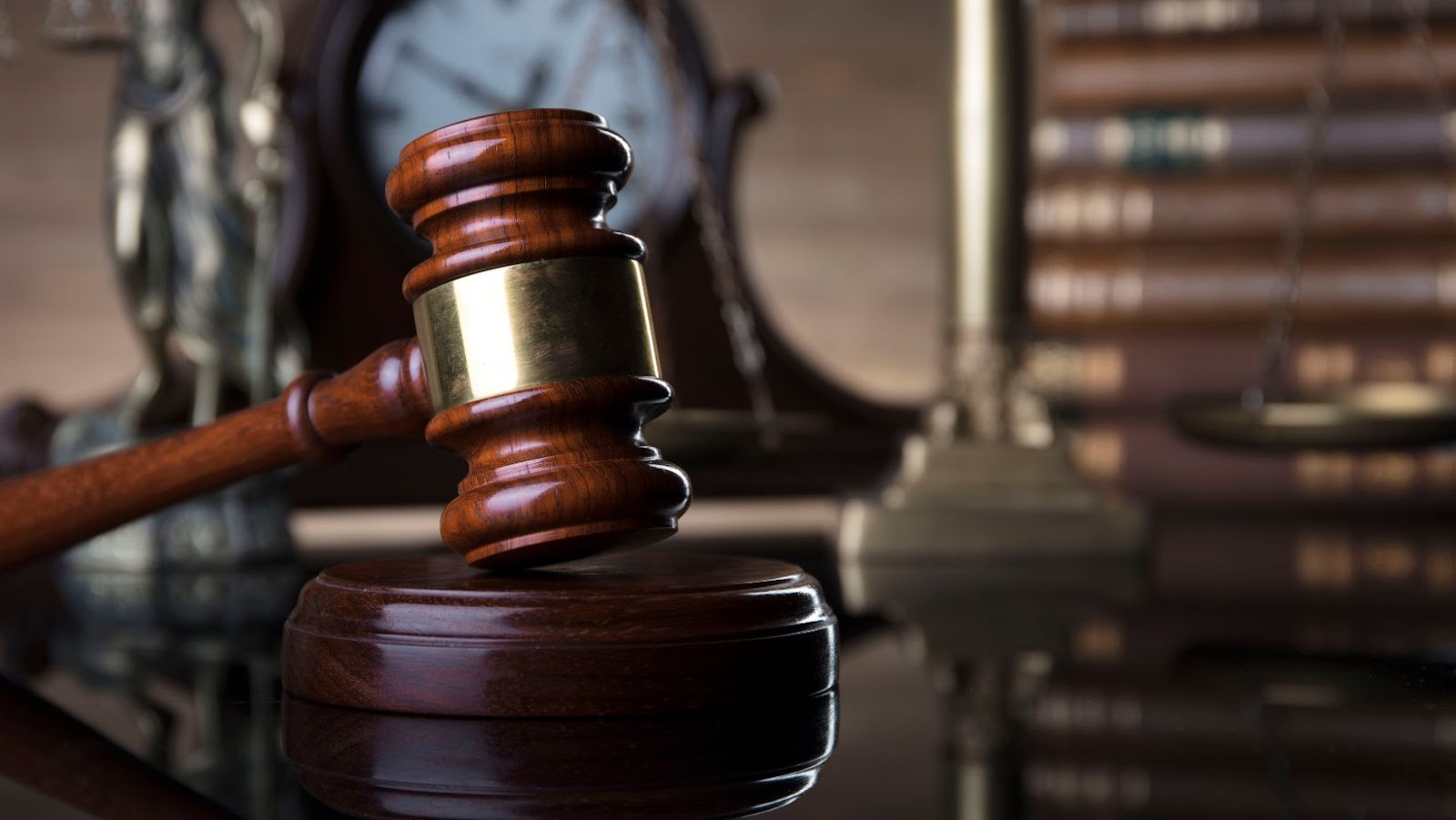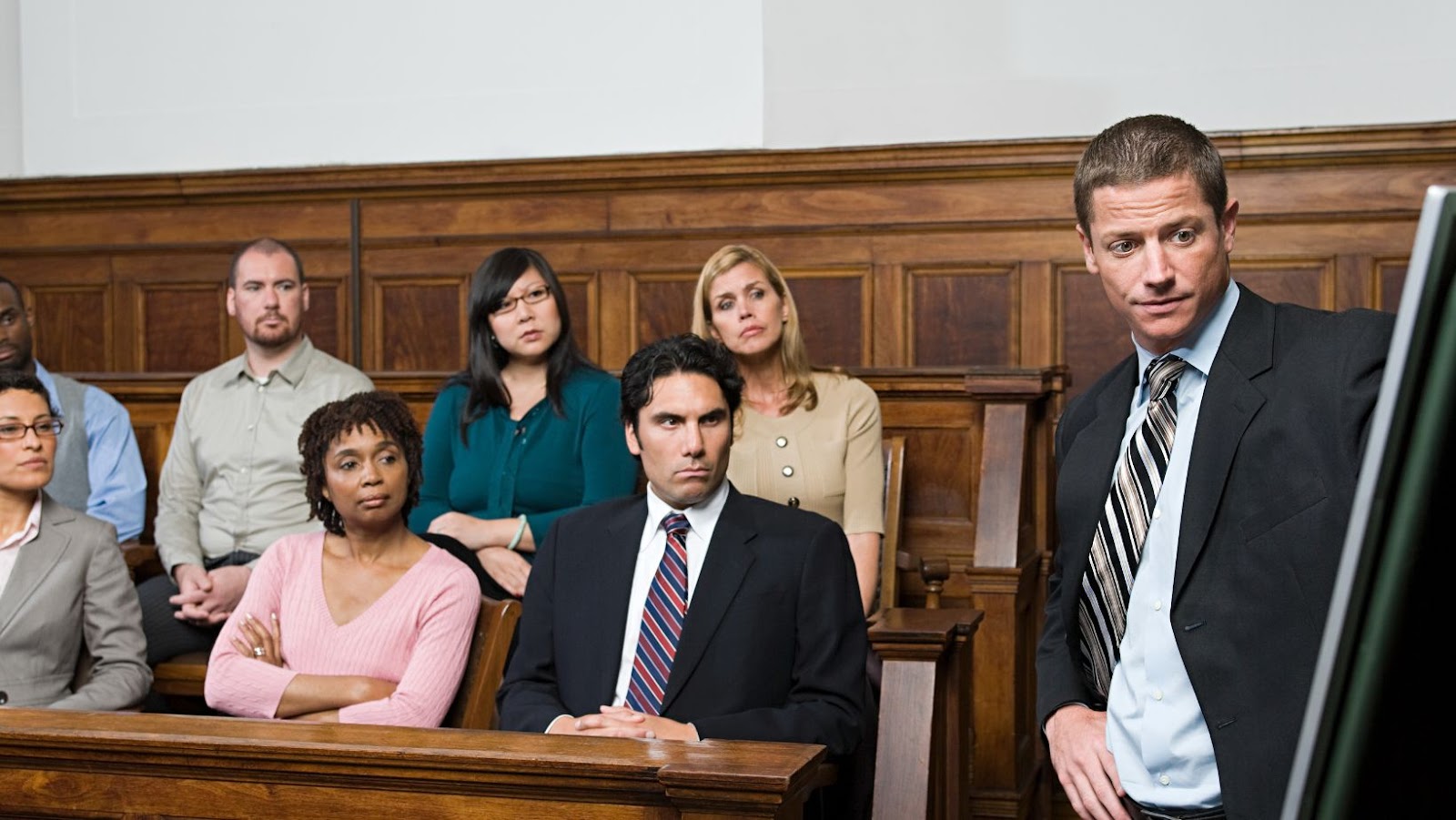Cori Crider is a lawyer and activist known for her work on civil liberties, human rights, and national security. She is the co-founder of the legal charity Reprieve, a global legal action charity that works on cases of injustice. Crider has worked tirelessly to protect individuals from human rights abuses and unlawful government surveillance.
This article will discuss some of the litigation cases she has been involved in and their impacts.
Who is lawyer and activist Cori Crider
Cori Crider is an international human rights lawyer and director of international advocacy organisation Foxglove. Previously, she was deputy director of the UK-based human rights NGO Reprieve and a Guantanamo Bay defence team trial attorney. She has successfully led campaigns to protect marginalised people throughout her career through legal and political action.
At Reprieve, Cori Crider was instrumental in the successful 2016 legal challenge to Britain’s complicity in extraordinary rendition programs, which saw hundreds of people unlawfully abducted and tortured during the US-led War on Terror.
During her time with James Madison Project, Crider worked to uncover records related to secret torture by working with whistleblowers and journalists to publish classified documents that exposed illegal detention programs led by US intelligence agencies. These documents informed court proceedings in France, Spain and other countries related to torture of detainees held by US authorities.
Crider was also involved in numerous lawsuits challenging human rights abuses carried out by US security forces worldwide, including habeas corpus petitions for prisoners detained indefinitely without charge at Guantanamo Bay and Bagram Airfield as well as litigating cases involving extraordinary rendition victims forcibly transferred abroad for detentions and interrogations outside the rule of law. Finally, she co-founded Yaqeen Institute for Islamic Research’s Legal Clinic after returning from England to focus exclusively on issues related to contemporary Muslim communities around the world such as freedom of religion, censorship and hate speech laws, and hate crimes incidence rates.
Cases Involving Human Rights
Lawyer and activist Cori Crider has worked on several important human rights cases. She has represented numerous victims of extrajudicial detention and rendition, wrongful detention, and victims of unlawful targeting by drones. Crider has also fought for the rights of vulnerable populations, such as refugees and unaccompanied children. Her work has focused on bringing justice to those whose rights have been violated.
Let’s take a look at some of the key cases she has worked on:
Representing victims of the US drone program
Throughout her career, UK lawyer Cori Crider has worked on various human rights cases involving the persecution and abuse of individuals by governments or groups. One project she has worked on extensively is representing victims of US drone strikes in Pakistan and Yemen.
Crider’s work with Reprieve, a UK-based legal charity, began as part of an ongoing effort to provide legal assistance to individuals affected by US drone strikes in their countries. She created a project to commission aerial photographs of targeted locations that showed the presence of civilians – contradicting official claims from US military sources that no such people were present at the site of strikes. This evidence was used by lawyers seeking justice for victims, who point out that under international law distinction must be made between military targets and civilian population centres before any form of lethal force can be applied to either group.

Crider has also represented clients whose family members were killed in drone strikes before national court systems to secure justice for them. This includes:
- Filing cases against high ranking British political figures for their alleged participation in illegal activities committed during drone strikes perpetrated by the United States government – causing injury or death to many innocent individuals.
- In 2013, appearing before The Investigatory Powers Tribunal on behalf of British citizens injured or killed in US drone strikes, demanding disclosure from UK intelligence agencies regarding their involvement with such operations.
Her efforts lay bare both US and British governments’ complicity in violating international laws protecting human rights and civilian populations caught up in drone warfare.
Representing victims of the UK’s rendition program
Cori Crider has been a key advocate for victims of the UK’s alleged rendition program. As a result, hundreds of individuals were kidnapped and detained without charge or trial in different countries worldwide. In particular, she was instrumental in representing nine men who claimed their human rights had been violated by their involvement in this program.
Crider filed a case against the United Kingdom’s Foreign and Commonwealth Office (FCO) on behalf of these nine men in January 2012, arguing that they had been “rendered” or secretively sent out of the country to locations where they were at risk of torture and other abuses. The nine individuals included: Abdel Hakim Belhaj, Sami Al Saadi, Omar Deghayes, Jamal Kiyemba, Binyam Mohamed, Bisher Al-Rawi and Idris Turay.
This case marked the first successful legal challenge to Britain’s alleged complicity in its extraordinary rendition program. The litigation resulted in compensation awards for each of the claimants totaling £23m from the government and settled a case that had remained outstanding for years before it was brought to court.
The judgments offered further insight into Britain’s involvement in rendition operations and established—in law—that cause had indeed been made out against all parties involved; sending a powerful message that those deprived of their basic human rights will face clear legal accountability if competent investigatory bodies uncover wrongdoing.
Representing victims of the US torture program
Cori Crider has represented victims of the U.S. government’s extraordinary rendition, detention, and torture programs as part of her work at Reprieve. This not-for-profit organisation works to end human rights abuse and deliver justice for those whose lives have been affected.
She has worked on several cases involving human rights abuses linked to U.S. policies and practices, most notably the extrajudicial transfer and torture of individuals suspected of terrorism links or other forms of political wrongdoing in countries around the world.
One case she successfully litigated involved Binyam Mohamed, who was abducted from his home in Pakistan by US forces and kept in an unknown location until 2004 when he was transferred to Guantanamo Bay where he was held without charge or trial for seven years. After a long legal battle finally reaching the UK Court of Appeals in 2012, it was revealed that US agents had tortured Mohamed in Morocco before his transfer from Pakistan to Guantanamo Bay, including sustained beatings and electric shocks carried out under US direction with UK complicity. Cori Crider’s team successfully established on behalf of Mohamed that this constituted unlawful torture which violated the basic standards conveyed by international law and standards protecting prisoners’ rights, leading to his release from Guantanamo Bay in 2008.

The case is just one example demonstrating Cori Crider’s commitment and dedication as a lawyer standing up for human rights worldwide and prosecuting those responsible for violating these fundamental protections.
Cases Involving Technology
Lawyer and activist Cori Crider has worked on several key cases involving technology. She has represented some of the world’s most vulnerable in legal battles involving government surveillance, online privacy, and free speech. She has also represented victims of modern day slavery, defending their rights in court and advocating on their behalf.
In this article, we will discuss some of the key cases Cori Crider has worked on:
Representing victims of online surveillance
Cori Crider is a human rights attorney and the co-founder of Foxglove, a technology and transparency legal advocacy group. She has represented victims of online surveillance and other intrusive technology, seeking to promote fair access to justice for those affected by such systems.
Among the cases she has taken on are those involving the UK’s mass surveillance program, which collects data about its citizens without their knowledge or consent; facial recognition software used by police forces in the United States; internet censorship in Turkey; and measures used by various governments to control Covid-19.
Ms. Crider has also worked with companies such as Microsoft, Google, Apple and Facebook to ensure that their products have appropriate privacy safeguards in place so that users’ data cannot be taken without their permission or against their will. In addition she has advocated for responsible use of artificial intelligence (AI) technology to avoid discriminatory practices when it comes to decision making processes.
In 2015 Cori Crider won the prestigious New York University Law School IF Rene Cassin Award for outstanding human rights achievements. This award allowed her to take her legal practice international, representing clients before courts around the world. Her work has helped individuals wrongfully targeted by oppressive governments gain greater access to justice – from rigorous legal systems – thereby helping build healthier and more democratic societies where all citizens can enjoy equal rights under law.
Representing victims of government hacking
One of Cori Crider’s key cases involved challenging the British government’s use of hacking in national security investigations. In 2016, Crider represented what is believed to be the first private citizens who are allowed to challenge bulk Government-sponsored hacking intrusions into their phones, computers and other digital devices.
In this case, the victims included a journalist who had written critically about U.K. ‘s intelligence policies, his wife and his lawyer who had challenged the UK spy agency’s intrusive practices while representing their case abroad. Crider helped bring this case before Europe’s human rights court where she argued that what her clients experienced violated their right to privacy as guaranteed by international law.
Although her clients ultimately lost their case in court, Crider succeeded in bringing more attention to the issue of digital surveillance by international governments and thereby gave voice to other people affected in similar ways.
Representing victims of data breaches
Cori Crider has worked on several technology-related cases affecting individuals, taking on companies exploiting our data and individuals’ privacy.
One such case was representing victims of data breaches. Crider helped lead a pro bono legal challenge on behalf of two million customers whose data from TalkTalk, a UK phone and broadband provider, had been stolen by hackers. The breach impacted the personal records – including banking details – of nearly six million people in the UK. Representing the two million customers, Crider and her team were able to secure an agreement from TalkTalk offering $450,000 for victims harmed by the breach for free credit monitoring and identity theft protection services.

Crider has also advocated for victims of Google’s tracking techniques, allowing them to collect data on its users without their knowledge or consent. In 2017 she represented three French citizens in front of the Paris court system testifying against Google‘s use of location tracking without their consent. The case was dropped again three months later when France’s highest administrative court determined that EU law should be interpreted in Google’s favour and that the company did not have to obtain explicit consent to track user locations if certain privacy policies are displayed.
Cases Involving Freedom of Expression
Cori Crider is a renowned British lawyer and activist. Throughout her career in the legal field, she has fought to defend freedom of expression in all its forms. Her work includes taking on cases to defend media freedom and digital rights.
In this article, we will be discussing some of the key cases she has been involved in related to freedom of expression:
Representing victims of censorship
Throughout her career, Cori Crider has developed a reputation for standing up for free expression and holding governments to account. She and her organisation, Reprieve, have been vocal advocates for press freedom and the rights of people affected by government censorship. Whether it’s large-scale invasive espionage or the targeting of journalists with defamation laws, Crider is committed to seeking justice for all those affected by oppressive state actions.
One of Cori Crider’s most famous cases is her work representing some of the victims of the United Kingdom’s practice of allowing its agencies to spy on journalists without a warrant. This was an egregious infringement of human rights law and raised numerous issues related to freedom of expression. By bringing this case before a European court, Crider could end this practice once and for all.
More recently, Reprieve successfully represented victims against absurd defamation trials brought by the Pakistani government against journalists like Ahmed Rashid who were attempting to report on militancy in the region. Through such cases, Cori Crider has helped bring justice to those wrongfully targeted by the Pakistani government in its efforts to suppress dissenting voices.
By standing up for free expression regardless of its political or commercial implications, Cori Crider has become a global leader in fighting against censorship and suppression from oppressive governments worldwide – helping protect essential media freedoms across countries near and far away from her shores.
Representing victims of internet shutdowns
Cori Crider works to protect digital rights and advocate for freedom of expression for all. As the Assisted Director of Reprieve’s Digital Civil Liberties team (DCSL), Cori has worked to secure justice for those affected by unlawful internet shutdowns. In 2019, Cori was awarded a MacArthur Fellowship, or the ‘genius grant’, in recognition of her work on behalf of Internet users suppressed by governments who seek to control public dialogue on controversial topics.
In 2019 and 2020, Cori filed two landmark cases in India’s Supreme Court challenging the rule that makes it lawful for local state governments to disconnect citizens from the Internet without any real judicial scrutiny. This work was partly prompted by Telangana state’s draconian decision in March 2019 to switch off its Internet infrastructure over an alleged threat to public order caused by anti-government protests.
In 2020, she also secured an injunction upholding a challenge brought against total social media shutdown in Jammu and Kashmir after Indian security forces blockaded it following protests against a controversial citizenship bill called NRC CAA.
Cori is currently prosecuting two major cases at India’s Supreme Court related to freedom of expression and internet access:
- one challenging India’s rule allowing state-level censorship;
- the other attacking orders criminalising peaceful speech about matters related to religion.
Additionally, she is involved with bringing legal action against Australia-based onshore operators who are complicit in facilitating torture overseas with their communications services –a decision that goes before Sydney High Court later this month (April 2021). She also monitors digital surveillance trends across Europe and provides advice locally and globally.
Representing victims of digital attacks
Technology is a powerful tool in the fight against speech rights. It can monitor individuals, shut down dissent, and even silence critics of oppressive governments. Attorney Cori Crider has dedicated her career to defending those whose free expression rights are under attack, particularly regarding technology. Here is a brief overview of some of the key cases she has worked on over the years:
- The Garcia Case: In 2011, Cori played an instrumental role in bringing about an out-of-court settlement in which Mexico paid reparations to Journalist Elena Garcia Esperon for the digital attack capabilities it used against her in 2009. Ms. Esperon received financial compensation and an acknowledgement from Mexico of “infringement upon her human rights” due to its use of spyware against her as a reporter investigating government corruption.
- In Re Skype Communications: Attorney Crider co-filed an amicus brief in 2011 supporting silent email monitoring by Skype Communications Inc., arguing that such surveillance is comparable to wiretapping and unconstitutional under U.S. law unless there was reason to believe that emails were sent with expectation of privacy that they deserve protection under the Fourth Amendment. In Skypes case, it was determined that no such expectations had been breached, allowing for interception of communications under certain circumstances with a warrant or court order.
- Association for Progressive Communications (APC) v Costa Rica: In 2012, Cori represented APC as an intervenor before Costa Rican courts seeking injunctive relief based on violations of freedom of expression laws stemming from internet service providers blocking access to certain websites deemed objectionable by authorities there at the time (specifically opposition websites.) Cori argued that blocking access without proper notice or allowing aggrieved persons petitioning for a judicial review constituted violations of Article 15(2) T-MEC and Article 16 ACHR (the American Convention on Human Rights). Eventually rulings favourable to Crider’s client APC were found in both Costa Rican Courts and Inter-American Court based on alleged violations by Costa Rica Human Rights regarding freedom from discrimination. They protected speech legislation whenever engaging Service Providers or State-owned telecommunications entities. The long battle finally ended with Costa Rican Supreme Court affirming Appellate ruling which sanctioned government for acting beyond its constitutional authority when infringing online free expression activities covered by Articles 15(2) TCA & 16 ACHR respectively found infringed upon civil liberties originally secured within International Law according Statute TCA [revisions July 29th 2017] ratified by 20+ countries including both Panama & Colombia back 2008 amid process enacting constitutional changes incorporating provisions originally agreed during said Transpacific Agreement negotiations i


More Stories
Leading Benefits of Offshore Software Development in Ukraine
What’s the Secret Behind Happy Hugo Casino’s Success Story?
Exploring the Benefits and Risks of Bitcoin in Sports Betting Today